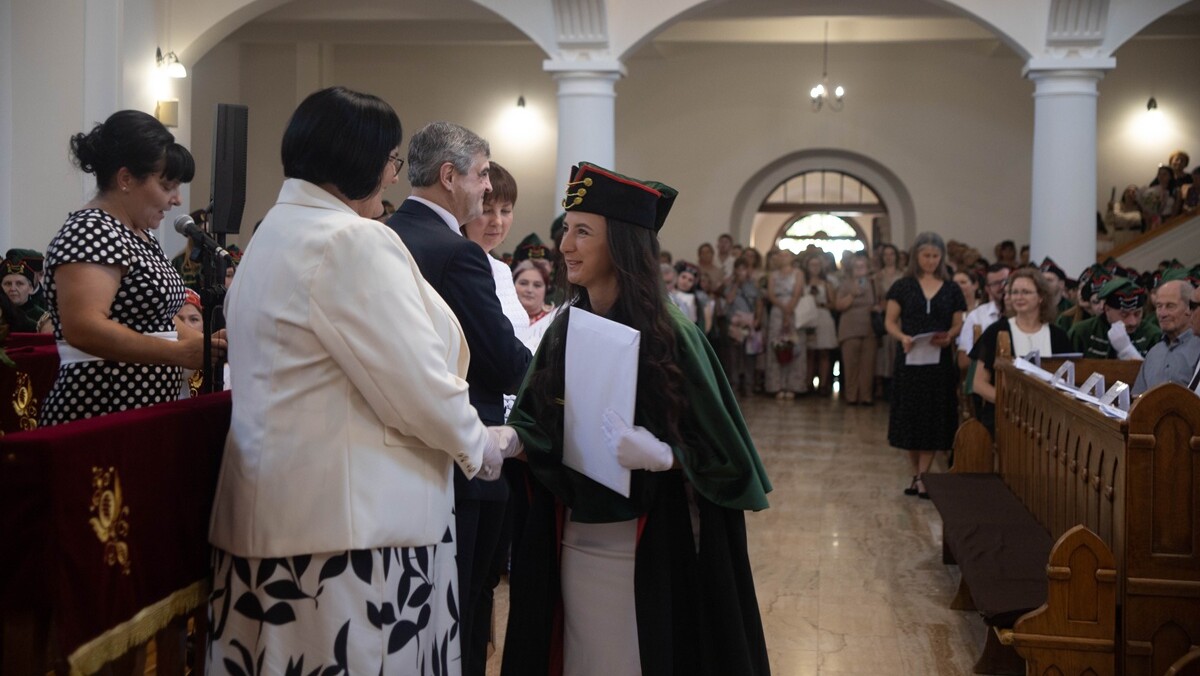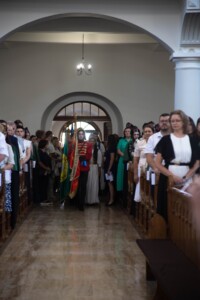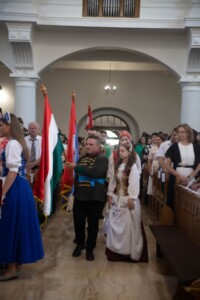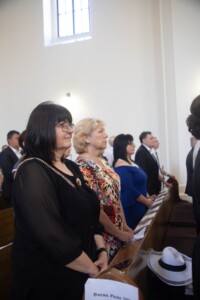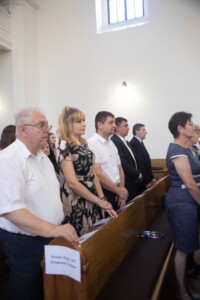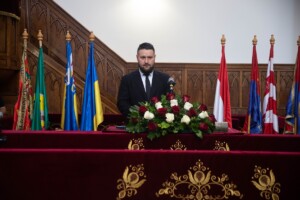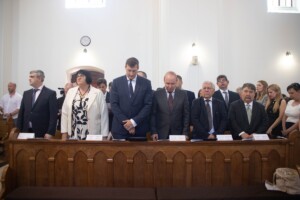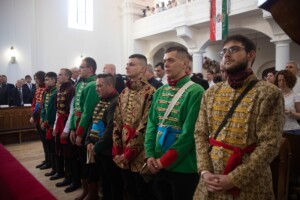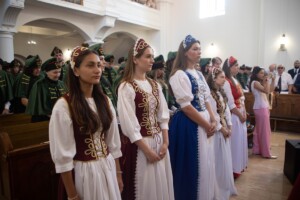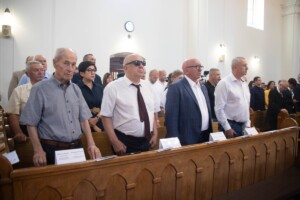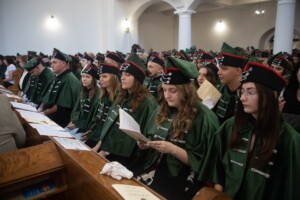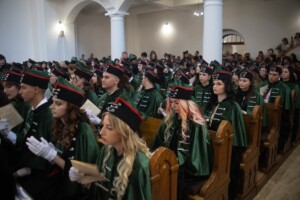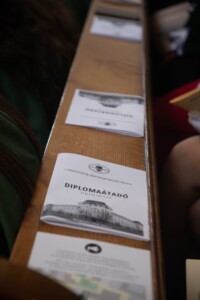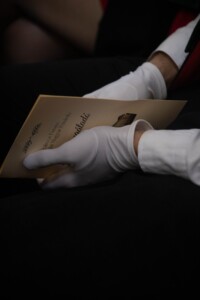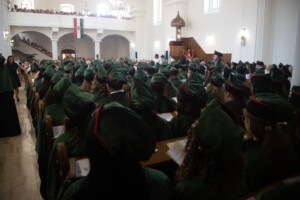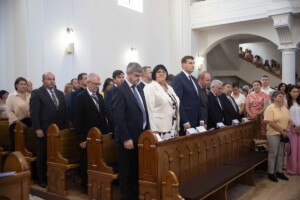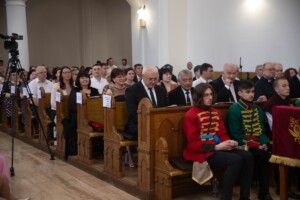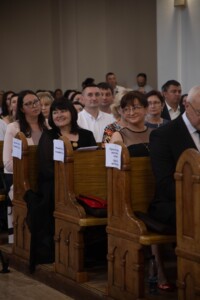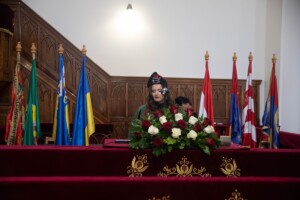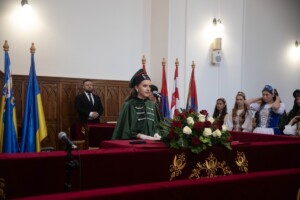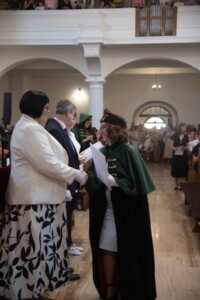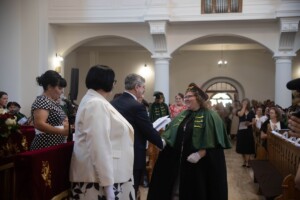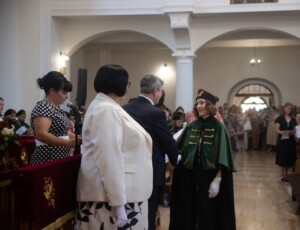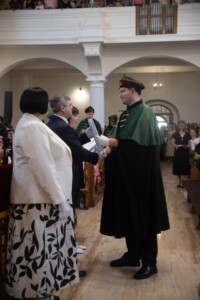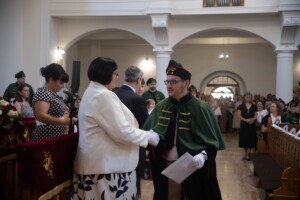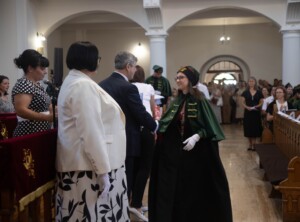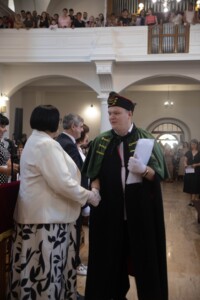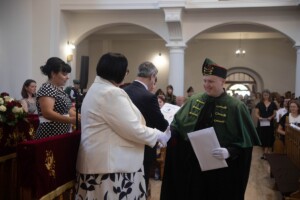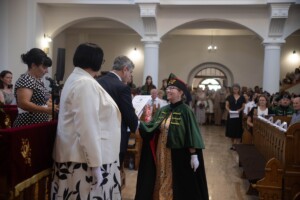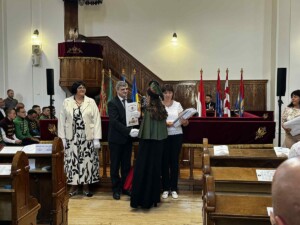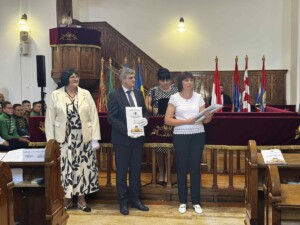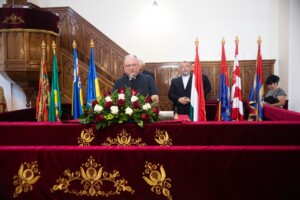Graduation ceremony at the Rákóczi College
The Ferenc Rákóczi II Transcarpathian Hungarian College held its graduation ceremony on July 3. The event took place in the Reformed Church in Beregszász. This year, a total of 197 students received their diplomas in undergraduate programs, and 73 in master’s programs. Among them, 6 students graduated with honors from undergraduate programs, and 15 from master’s programs.
As in previous years, the ceremony began with the procession of historic flags, followed by a greeting from János Margitics, pastor of the Reformed Congregation in Beregszász. Afterwards, the national anthem and the anthem of the Rákóczi College were performed.
In his annual speech, István Csernicskó, Rector of the Rákóczi College, emphasized that the 2024–2025 academic year was once again marked by continuous adaptation and operating under extraordinary circumstances.
“The college community symbolizes the tireless perseverance of the people of Transcarpathia and, within it, the Hungarian community living here, as well as their determination to survive and thrive despite difficult conditions,”
he stressed.
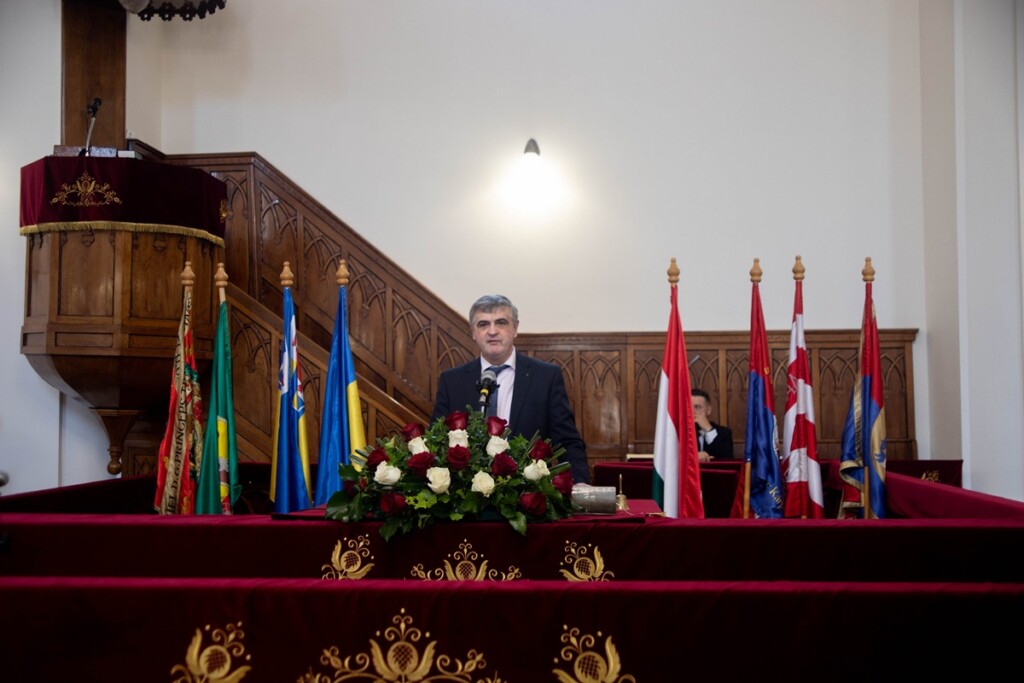
He also noted that this year the college expanded its portfolio by launching four new programs. With these additions, applicants will be able to choose from a total of thirty-three programs in seven fields of study in the next academic year. During the past academic year, the college successfully completed the scheduled accreditation of six programs, and ten more programs are scheduled for accreditation in the upcoming academic year.
Finally, he expressed his gratitude to the lecturers, staff, students, and supporters who have provided stability and opportunities for development.
“Graduating from college marks the closing of an important chapter in a young person’s life. It is up to you what you do with the knowledge you have acquired over the years. However, never forget that you are the hopes of the Hungarian community in Transcarpathia, the preservers of your ancestors’ heritage, and the custodians of the thousand-year-old Hungarian culture and language of the Carpathian Basin,”
highlighted Miklós Panyi, Deputy Minister, State Secretary for Parliamentary and Strategic Affairs of the Prime Minister’s Office.
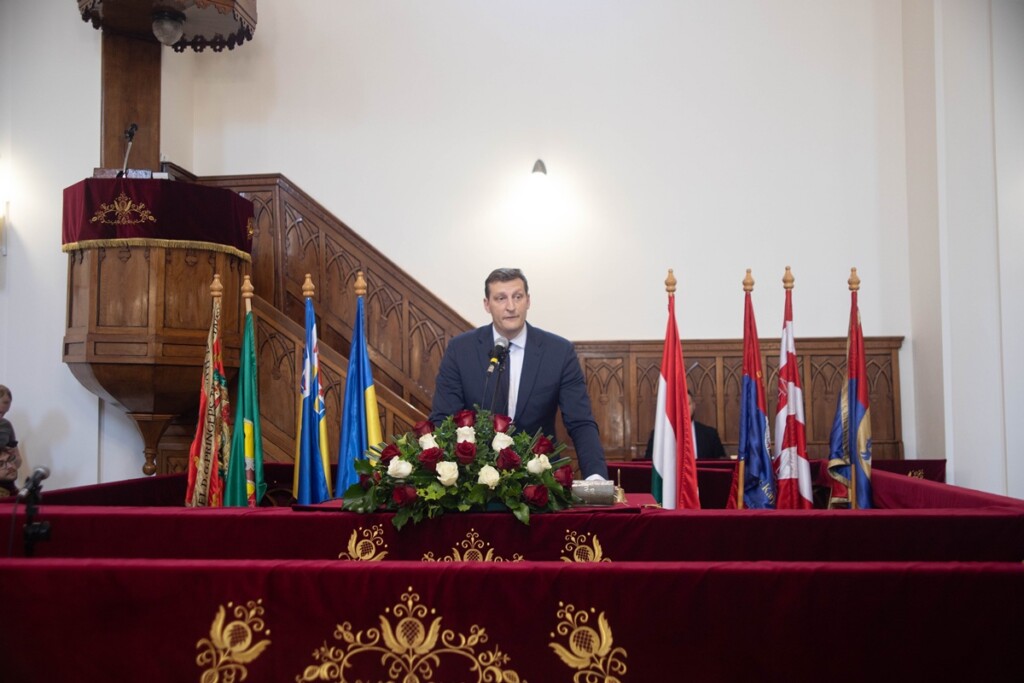
Gergely Pálmai, Deputy State Secretary responsible for vocational training at the Ministry of Culture and Innovation, remarked that preserving the Hungarian language beyond the borders and ensuring its effectiveness and competitiveness is a shared goal, as it enables the acquisition of marketable professional knowledge.
“In our ever-changing world, we also strive to prepare young people to adapt flexibly to constantly shifting circumstances, and to be able to change in ways that harmonize their external and internal worlds. I trust that in your future work and approach to learning, you will continue with unwavering commitment and dedication,”
he added.
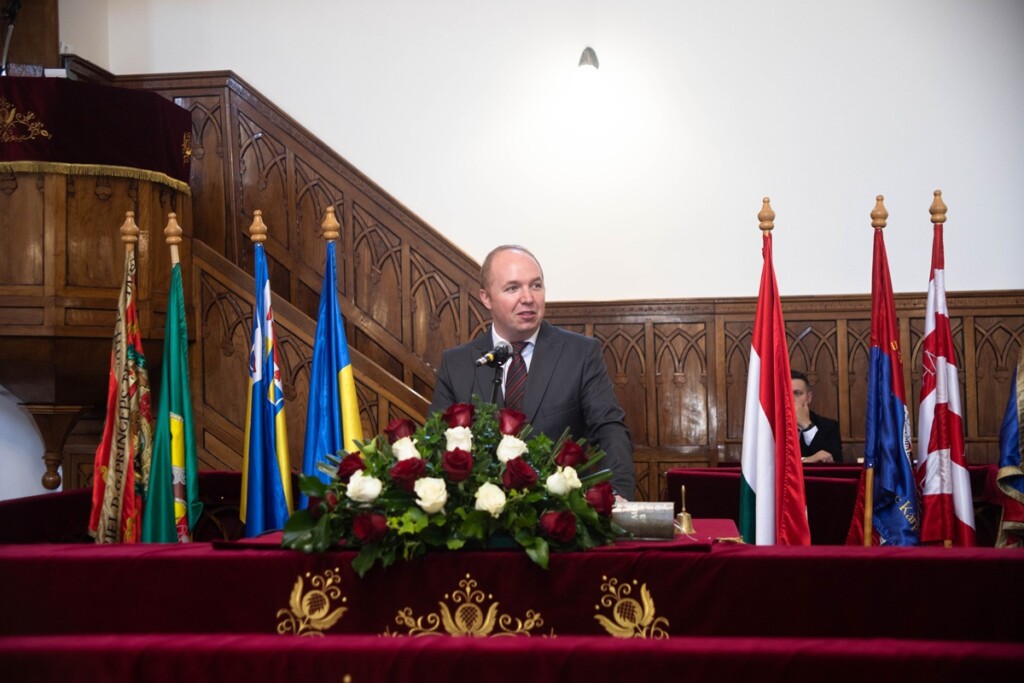
Following this, on behalf of the graduating students, Klaudia Barta, a graduating full-time student majoring in English Language and Literature, delivered her words of gratitude. After that, the students took their oath, which was led by Andrea Lőrincz, also a graduating full-time student majoring in English Language and Literature.
After the general presentation of the diplomas, the graduates received their well-deserved certificates from Ildikó Orosz, President of the Rákóczi College, and István Csernicskó, followed by the singing of the student anthem Gaudeamus igitur.
In her speech, Ildikó Orosz pointed out that today’s graduates began their studies during the Covid pandemic, when they spent more time at home than at the college. Later, the war confined them within the institution’s walls, as there they had electricity and shelter.
“In recent years, our graduates have lived like noble plants in a greenhouse, but today that has come to an end. And I release you with a heavy heart, just as a good gardener fearfully plants his seedlings in the open, knowing they will face the adversities of the weather. But I can do nothing else but offer you this guidance: ‘The last of human freedoms is the ability to choose one’s attitude in any given set of circumstances.’”
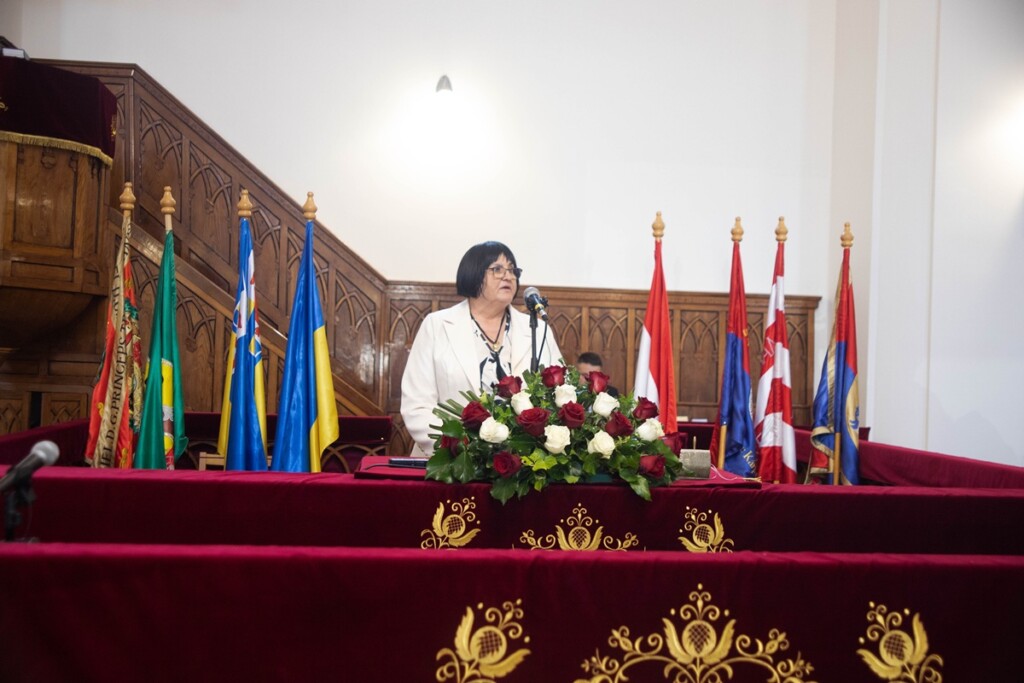
At the end of the event, the representatives of the historical churches asked for God’s blessing upon the lives of those present. The ceremony concluded with the singing of the Szózat.
Anita Kurmay
-
This article is also available in
Українська
Magyar

